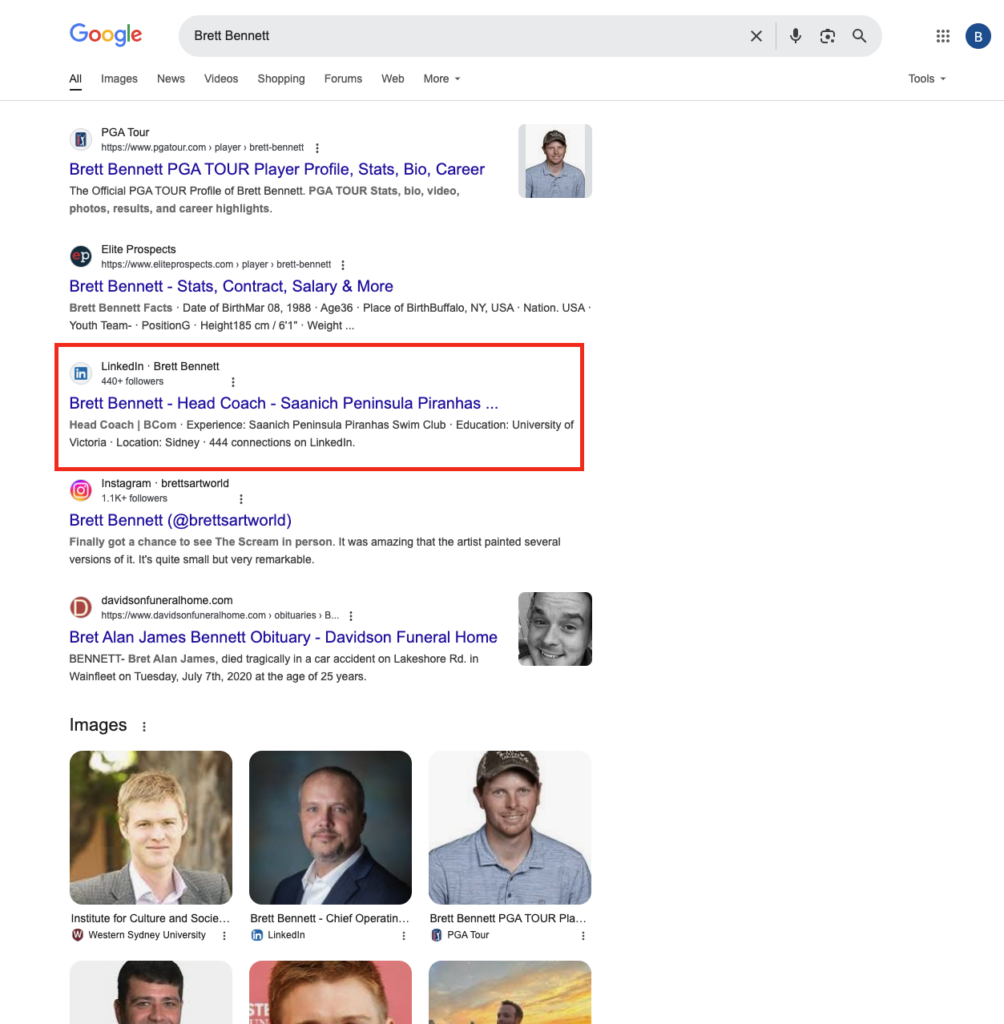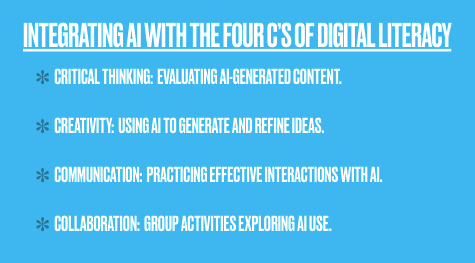My Digital Footprint
Jesse Miller was phenomenal and one of the most enjoyable guest speakers I have had at UVic. He was engaging and funny, and the discussion on our Digital Footprint was interesting as well as slightly terrifying. My parents were both strong believers in not being on social media, but I eventually jumped on the Instagram and Facebook train when I was in Grade 7. I didn’t think much of it at the time, but I’m pretty sure I lied about my age to join at least one of these social media platforms. As a kid, you would rarely think twice about it, especially since most of my friends were already on the platforms. But looking back now, you can see the obvious dangers of broadcasting personal information and things that will stay on the internet forever.
I was curious what my digital footprint would be after discussing it in class, so I googled my just my full name (Brett Bennett) to see if anything popped up. I was doubtful as I was sure there would be at least a few Brett Bennetts with a larger digital footprint than me.

I actually had a hit! It was both terrifying and a stroke of my ego for my wicked networking skills on LinkedIn. With even a bit of effort, someone would be able to find me (and a LOT of information) with just a simple google search of my name. Thankfully, I keep my LinkedIn professional and up-to-date so it is not the end of the world to have that be a search result. In fact, feel free to connect with me if you want to follow along with my career path: Brett Bennett LinkedIn
Integrating AI
Another part of Jesse’s talk that stood out to me revolved around AI and it’s potential to be impactful in ways we might be able to fully grasp yet. While some of the scenarios and hypotheticals were uncomfortable to think about, I’m glad he raised them, and encouraged us to start to think more critically about AI.
My biggest takeaway on the AI side of things are The Four C’s of Digital Literacy:

Critical Thinking is the one that stands out to me. Not only can we evaluate AI through critical thinking skills, we can also encourage our students to apply critical thinking to really any topic. The only way to get better at critical thinking is more exposure to topics where critical thinking is used.
Sorry, but comments are not enabled on this site.